Are Dalmatian Dogs Good Pets? Key Factors to Consider
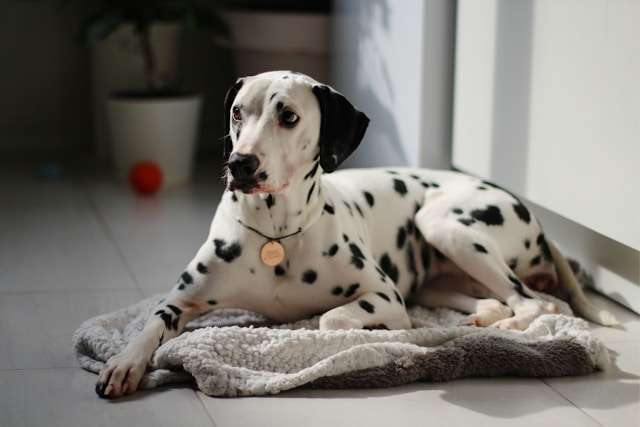
Are Dalmatian Dogs Good Pets? Dalmatians are known for their unique spots and lively personalities, making them popular for families considering a pet. The short answer to whether Dalmatians make good pets is yes, they can, but they require the right environment and care. These dogs are energetic, intelligent, and loyal, qualities that endear them to many dog lovers. However, their high energy levels mean they are not the best fit for everyone.
Families who enjoy an active lifestyle often find that Dalmatians are great companions. They thrive on regular exercise and mental stimulation, making them ideal for those who can commit to daily walks and playtime. Their playful nature often extends to children, though their energy might be overwhelming for very young kids. Proper training and socialization from an early age are vital to harnessing their intelligence and reducing any behavioral challenges.
Choosing a Dalmatian as a pet requires careful consideration of its needs and matching it to your lifestyle. Understanding its history, temperament, and care requirements can help us make an informed decision. Investing time and effort into its well-being can create a harmonious and fulfilling relationship with these spotted friends.
Table of Contents

Are Dalmatian Dogs Good Pets? Key Takeaways
- Dalmatians require a lot of exercise and mental stimulation.
- Proper training ensures they are good family dogs.
- Consider their needs before deciding if they are suitable for your family.
Origins and History
Dalmatians are a dog breed known for their distinctive spotted coats. They originated in Europe and have long been associated with various roles, from hunting to serving as firehouse mascots and coach dogs.
Development of the Breed
The Dalmatian’s roots trace back to the historical region of Dalmatia, now in Croatia. The breed likely developed from a mix of pointers and a spotted Great Dane. Its unique appearance and energetic nature made it a suitable companion for various tasks.
Bred originally as hunting dogs, Dalmatians were later trained to run alongside horse-drawn carriages. This job required them to be active and vigilant, showcasing their intelligence and endurance. Read more about Dalmatian origins.
Role as Firehouse Mascot and Coach Dogs
Over time, the Dalmatian became associated with firehouses. Their history as coach dogs translated well to fire brigades. They ran alongside fire trucks, cleared paths, and acted as guard dogs. Their presence helped calm the horses before fire engines switched from horse-drawn to motor-driven.
As firehouse mascots, Dalmatians became symbols of bravery and protection. Their loyal and spirited nature suited these roles, and they quickly became beloved figures in fire stations worldwide. Learn more about Dalmatians as firehouse mascots and coach dogs.
Physical Characteristics
Dalmatians are well known for their striking appearance and athletic physique. Their unique coat pattern and muscular build set them apart, making them easily recognizable among dog breeds.
Distinctive Coat and Markings
Dalmatians have a unique coat that features black or liver-colored spots on a white background. This pattern is one of the breed’s most recognizable features. The spots can vary in size and are usually evenly distributed across the body, though some variations occur.
A Dalmatian’s smooth, short hair is easy to maintain but sheds regularly. Frequent brushing helps manage the shedding and keeps their coat looking sleek. We notice that their fur does not need frequent washing, but regular grooming can ensure that it remains healthy and shiny.
Athletic Build
The Dalmatian dog boasts an athletic build, evident in its muscular and lean body. They are medium-sized dogs, generally weighing between 45 to 70 pounds. Their solid limbs and deep chests contribute to their athletic appearance. This body structure supports their energetic and lively nature, allowing them to excel in running and agility sports.
Their high energy levels make them perfect companions for active families or individuals who enjoy outdoor activities. We should also provide them with daily exercise to keep them healthy and happy. As a breed, Dalmatians are highly efficient and driven, often excelling in roles that require endurance and stamina, such as carriage dogs in the past.
Personality and Temperament
Are Dalmatian Dogs Good Pets? Key Factors to Consider Dalmatians are fascinating dogs known for their intelligence and unique personalities. They are energetic and playful, which makes them great companions for active families. Though protective, they can be reserved around strangers. Let’s explore their characteristics more deeply.
Intelligent and Independent Thinkers
Dalmatians are pretty intelligent and independent thinkers. This can be seen in how they approach training and problem-solving. They learn quickly and can grasp commands with ease. However, their independent nature may sometimes make them a bit stubborn.
To effectively train a Dalmatian, we should use positive reinforcement and patience. They enjoy challenges, so engaging them in advanced training sessions or puzzles can be beneficial. Establishing clear rules and consistent routines is essential to keep their minds engaged.
Playful and Energetic Nature
These dogs have boundless energy. Known for their playful demeanor, they thrive in environments where they can run and play regularly. We should provide ample exercise opportunities to keep them healthy and happy.
Daily walks and playtime that allow dogs to burn off excess energy are a must. Lack of physical activity can lead to behavioral issues. Dog sports like agility or Frisbee are great outlets. Dogs’ playful nature makes them wonderful partners for active families or individuals who enjoy the outdoors.
Protective but Reserved with Strangers
Dalmatians exhibit a protective streak, showing loyalty to their families. They are watchful and can serve as good watchdogs. However, they also tend to be reserved with strangers.
This cautiousness is not necessarily aggression but a natural wariness. We should socialize them early to ensure they are comfortable in different settings with various people. Positive interactions will help them become well-adjusted adults. Being protective is part of their charm, reflecting their devotion to us.
Training and Socialization
Successful interaction with a Dalmatian requires attention to both training and socialization. These dogs are known for their intelligence but can be stubborn, making early training crucial. Socialization helps them engage positively with people and other animals.
Importance of Early Training
Are Dalmatian Dogs Good Pets? Key Factors to Consider: Due to their high energy and intelligence, training early is essential for Dalmatians. We emphasize setting boundaries right away to help them learn what is expected. Basic commands should be introduced as soon as they join the family.
Positive reinforcement methods work well with this breed. Rewards such as treats and praise can motivate them to listen and learn. This approach enhances their skills and strengthens the bond between us and our pets.
Continued practice is critical. Consistency in commands and expectations helps Dalmatians understand their role within the household. Enrolling them in puppy classes can also be beneficial for additional guidance and exposure to structured learning.
Socialization with Humans and Animals
Socialization is essential to ensuring that Dalmatians grow up to be well-adjusted pets. They are naturally friendly but need guidance in interacting correctly with people and other animals. Introducing them to various environments, sounds, and situations at a young age helps.
Organized playdates and visits to dog parks facilitate positive interactions with other dogs. These experiences teach them to behave appropriately in different scenarios, reducing anxiety or aggression later on.
While they are typically good with other pets, monitoring early interactions with cats or smaller animals might be necessary. Supervised meetings allow us to intervene if any issues arise, ensuring harmonious relationships.
Dealing with Stubbornness
Dalmatians can be notoriously stubborn, which may challenge even the most patient dog owners. Understanding their mindset helps us tailor our approach to training. Stubbornness often stems from their independent nature and desire to explore.
It is important to set a firm yet kind routine. Establish a structured environment where rules are clear and boundaries are respected. Consistency in training helps minimize episodes of defiance and fosters cooperation.
When faced with stubborn behavior, we must remain calm and persistent. Losing patience may reinforce their resistance. Instead, utilizing patience and a variety of engaging activities can redirect their focus and encourage better obedience.
By focusing on these areas, our Dalmatians become not just obedient dogs but also valued members of our families.
Exercise and Activity Levels
Dalmatians are energetic dogs that thrive on physical and mental stimulation. Understanding their exercise needs is crucial for ensuring they stay happy and healthy. We will explore how much daily activity they require, ways to keep their minds active, and their suitability for active families.
Daily Exercise Requirements
Dalmatians are high-energy dogs that require a significant amount of exercise. We must ensure they get enough daily activity to burn off their abundant energy. A brisk walk or run for at least an hour is essential for maintaining their health. Ideally, they require about 1 to 2 hours of vigorous exercise daily. This can include jogging, cycling, or playing fetch in a secure area. Regular exercise not only keeps them fit but also prevents boredom-related behavior problems. Consistency is vital, as irregular activity can lead to a restless and unhappy pet.
Mental Stimulation and Play
Apart from physical exercise, mental stimulation is equally essential for Dalmatians. They are intelligent and curious, so keeping their minds engaged is crucial. We should include activities like puzzle toys, obedience training, and interactive games. Games like hide and seek or scent work can tap into their natural prey drive, providing mental and physical satisfaction. Daily problem-solving activities help them avoid becoming disobedient and channel their energy positively. Engaging their brains is as important as physical exercise for a well-rounded, content pet.
Suitability for Active Families
Dalmatians are ideally suited for families that enjoy an active lifestyle. We must consider our activity levels when bringing a high-energy dog like this into our lives. Their love for outdoor adventures means they happily join us on hikes, runs, and other physical activities. However, it’s important to remember that they are not suited to being left alone for long periods. Their social nature thrives on company and regular interaction. Dalmatians can be the perfect companions for families that are always on the move, bringing joy and motivation to stay active together.
Health and Wellness
When caring for Dalmatians, paying attention to their health needs is crucial. They are susceptible to specific issues, including deafness and urinary stones, that require our awareness and proactive management. A well-balanced diet and regular health checks are essential to their overall wellness.
Common Health Problems in Dalmatians
Dalmatians are known for certain genetic health issues. One significant concern is urinary stones, which can lead to discomfort and infections if not properly managed. Their unique metabolism predisposes them to urate stone formation.
In addition to urinary stones, we must be vigilant about hip dysplasia and skin allergies. These conditions can impact their quality of life and require ongoing treatment or lifestyle adjustments. Regular vet visits and early detection are crucial to maintaining their health.
Deafness and Genetic Health Testing
Deafness is a prevalent issue in Dalmatians, who have a high incidence of hearing loss. It’s often linked to the breed’s distinct coat color genetics. To identify potential hearing issues early on, puppies should be tested for hearing using BAER (Brainstem Auditory Evoked Response) testing.
Genetic health testing helps us in selecting breeding pairs to reduce the risk of producing deaf offspring. Understanding these genetic risks and testing for them is vital for improving the health outcomes of our pet companions.
Diet and Nutrition Needs
A Dalmatian’s diet contributes significantly to their health and ability to manage genetic conditions. They require a balanced diet that minimizes purines, which can lead to urinary stones. Providing ample fresh water is crucial to ensure proper hydration and support kidney function.
Feeding them high-quality, low-purine dog food can help reduce the risk of stone formation. Regularly monitoring their weight and adjusting their diet as needed is essential for preventing obesity, which can exacerbate other health issues like hip dysplasia. Our active involvement in meal planning supports their overall wellness.
Grooming and Shedding
Dalmatians are known for their distinctive coats, but they require specific care to manage shedding and maintain their appearance. Regular grooming helps control loose fur and keeps their coat healthy. We’ll explore shedding patterns, coat care, and bathing and nail-clipping requirements for these dogs.
Shedding Patterns and Coat Care
Dalmatians have a short yet dense coat that sheds throughout the year. Though their fur is short, the constant shedding can leave hair around the home. It’s most noticeable in the spring and autumn as they prepare for seasonal coat changes. To manage this, we recommend brushing them with a stiff or rubber brush several times weekly. This will help remove loose hair and reduce allergens in our environment.
Maintaining a clean and well-groomed coat is essential, as it minimizes shedding and keeps our Dalmatian comfortable. For busy schedules, a professional grooming service may be a practical alternative to frequent at-home grooming sessions. We must be consistent with our Dalmatian’s grooming routine to manage shedding effectively.
Bathing and Nail Clipping
Bathing our Dalmatian regularly is essential, but it’s crucial not to overdo it, as too much bathing can strip the natural oils from their coat. We should aim to bathe them as needed, typically every few months or when they get filthy from outdoor play. It’s advantageous to use a dog-specific shampoo to preserve coat health.
Nail clipping is another crucial aspect of grooming. Keeping their nails trimmed prevents discomfort and potential injury. Regularly checking and trimming their nails can keep them in good shape. Whether we handle this ourselves or seek help from a professional groomer, we must include nail care in our grooming routine.
Finding a Dalmatian
When deciding to adopt a Dalmatian, we have a few options. It’s crucial to consider reputable breeders, the possibility of adoption, and the responsibilities of owning this energetic breed.
Choosing Reputable Breeders
Working with reputable breeders ensures we get a healthy Dalmatian puppy. These breeders prioritize the health and temperament of their dogs. They should provide health clearances, especially for common issues like hip dysplasia and deafness.
We should visit the breeder, meet the puppies’ parents, and ask about their breeding practices. It’s essential to feel comfortable that the breeders have the dogs’ best interests in mind. A trustworthy breeder will also ask us questions to ensure we’re a good fit for the breed.
Adopting Rescue Groups and Shelters
Adopting a Dalmatian from a rescue group or shelter can be a rewarding experience. Many adult Dalmatians need loving homes because they require experienced handlers. Shelters often evaluate each dog’s behavior and health, providing us with valuable insights.
It’s worth contacting local and national Dalmatian rescue groups to inquire about available dogs. Adopting supports the animal welfare community and offers a loving home to a needy dog. It’s an excellent option for those of us who prefer older dogs or want to avoid the challenges of training a puppy.
Considerations for First-Time Owners
Owning a Dalmatian can be a big responsibility, especially for first-time dog owners. These dogs have high energy levels and need regular exercise, which is essential to consider if we live in apartments.
Training and socialization are vital from early on to manage their spirited nature. We should be prepared for their grooming needs due to shedding. Understanding these factors helps us make an informed choice, ensuring that a Dalmatian fits our lifestyle and family dynamics well.
Common Behavior Challenges
When owning a Dalmatian, understanding common behavior challenges can help us train and manage them effectively. This ensures a happy and balanced life for both us and our dogs.
Addressing Excessive Barking
Are Dalmatian Dogs Good Pets? Key Factors to Consider: Dalmatians are known to bark, which can be both a benefit and a challenge. Their barking makes them good watchdogs, alerting us to strangers or unusual activities in our surroundings. However, excessive barking can become an issue.
Our first step is to identify why the Dalmatian is barking. It could be due to boredom, anxiety, or response to noises. Providing plenty of exercise and mental stimulation can help reduce this behavior.
It’s essential to teach our dogs the “quiet” command. Positive reinforcement, like treats or praise when they stop barking on command, encourages them to stay calm. Consistency in training helps them understand when barking is appropriate.
Managing Aggression Toward Other Dogs
Some Dalmatians may exhibit aggression toward other dogs, primarily if they haven’t been socialized properly. This aggressive behavior can manifest as growling or lunging during walks or playtime.
To manage this, it’s important to introduce our Dalmatian to other dogs from a young age. Creating positive experiences during these encounters is crucial. Strategies that we can employ include using a calm voice and providing rewards for non-aggressive behavior.
In more severe cases, consulting a professional dog trainer specializing in aggression might be necessary. They can create a behavior modification plan tailored to our dog’s needs, helping them feel more comfortable around others.
Understanding the Prey Drive
A Dalmatian’s prey drive can be strong, causing them to chase smaller animals such as squirrels or cats. This behavior is tied to their instincts and can pose risks if not properly managed.
It is crucial to train our dogs to respond to recall commands, even amid distractions. Regularly practicing these commands ensures they return to us when called, reducing their chances of pursuing other animals.
We should also use leashes or fenced areas outside, providing a controlled environment. Keeping them busy with toys or games that satisfy their hunting instincts can also mitigate the urge to chase.
Training, socialization, and consistent routines help manage these behaviors, making life with our Dalmatian more enjoyable.
Dalmatians in the Family
Dalmatians are often seen as appealing pets due to their energetic nature and loyalty. They can be significant assets to families, offering both companionship and protection.
Interaction with Children and Other Pets
Dalmatians usually do well interacting with children. Their playful and energetic nature makes them lively companions for kids. However, they must be well-socialized as puppies. This helps them develop patience and tolerance, crucial traits for a family dog.
Dalmatians are generally gentle, but supervision is essential during playtime with younger children to ensure safety for the kids and the dog. Regarding other pets, early socialization is necessary to help Dalmatians get along well. Introducing them to various animals at a young age can foster better relationships between them and any other pets in the household.
Roles as Companion Animals and Guard Dogs
Dalmatians offer unique benefits as companion animals and guard dogs. They are known for their loyalty and often form strong bonds with their human families, providing excellent companionship. Their affectionate nature makes them wonderful pets for those seeking close human interaction.
As potential guard dogs, Dalmatians can be protective without being overly aggressive. Their alertness ensures they will notify the family if they sense any unusual activity around the home. Despite their watchdog capabilities, it is crucial to remember they thrive on companionship and need regular interaction with their families to stay happy and balanced. Regular exercise and engagement are essential to maintain their well-being.
Frequently Asked Questions
In this section, we address some common concerns about raising Dalmatian dogs. Their temperament, compatibility with children and other pets, training challenges, health issues, and exercise needs are essential factors to consider.
What should potential owners know about Dalmatian temperament?
Dalmatians are known for their high energy and intelligence. These traits make them vibrant companions but can lead to stubborn behavior. They require an experienced owner who can provide consistent guidance and attention to help them thrive in a household.
How do Dalmatians typically behave around children?
Dalmatians can be great family pets when properly socialized. They are usually affectionate and enjoy playing with kids. However, like all dogs, it’s important to supervise interactions between Dalmatians and younger children to ensure safety and harmony.
What are the common challenges when training a Dalmatian?
Training a Dalmatian requires patience and persistence. They can be strong-willed, so we need to maintain a positive and firm approach. Consistent routines and early socialization help them reach their full potential as obedient pets. These dogs respond well to reward-based training methods.
Can Dalmatians coexist peacefully with other household pets?
Dalmatians usually get along well with other dogs if socialized from an early age. However, their interactions with other animals can vary depending on temperament and experiences. Therefore, it’s essential to monitor their behavior and provide proper introductions to promote peaceful coexistence.
What health concerns should we be aware of when caring for a Dalmatian?
We should be aware of specific health issues that can affect Dalmatians. They may be prone to deafness, urinary stones, and skin allergies. Regular vet check-ups and a balanced diet are crucial in managing these potential health concerns and ensuring a healthy life.
How much exercise does a Dalmatian need?
Dalmatians are high-energy dogs that require plenty of exercise. Daily activities such as long walks, playtime, or jogging help keep them physically and mentally stimulated. Providing them with ample opportunities to burn off energy is critical to preventing behavioral problems.

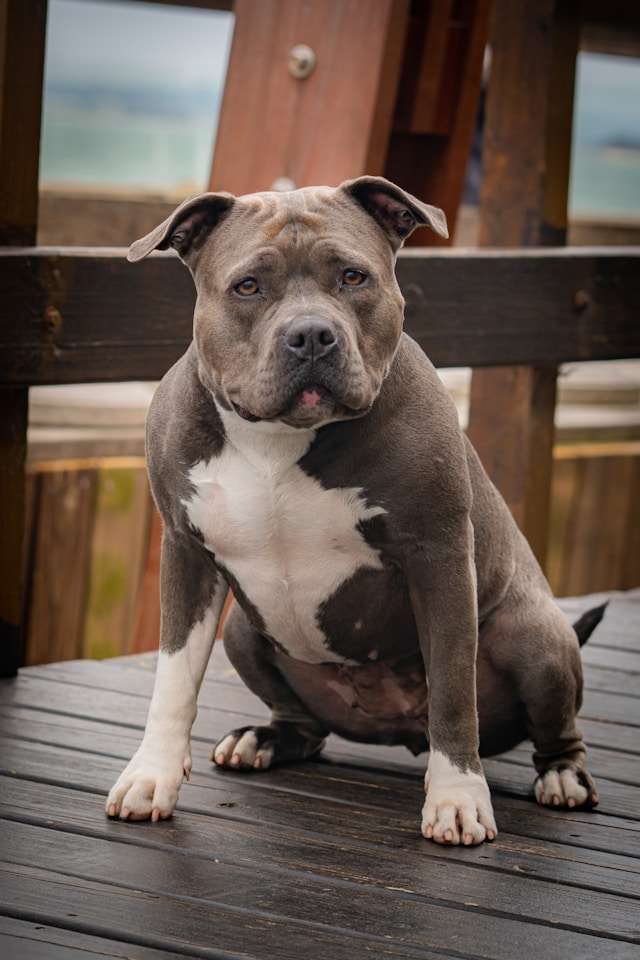


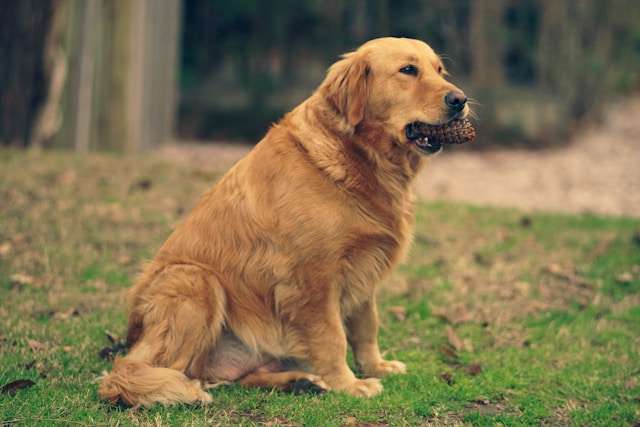
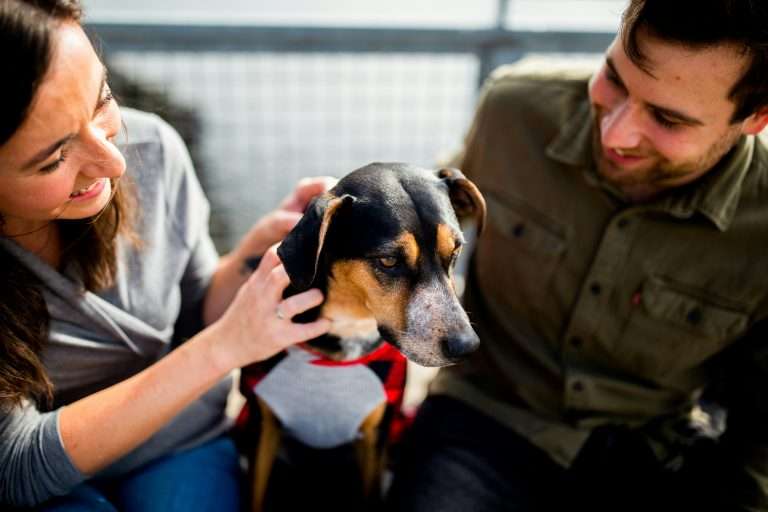
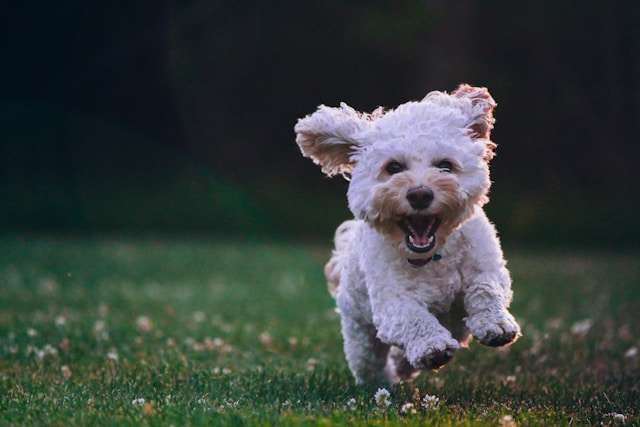
One Comment